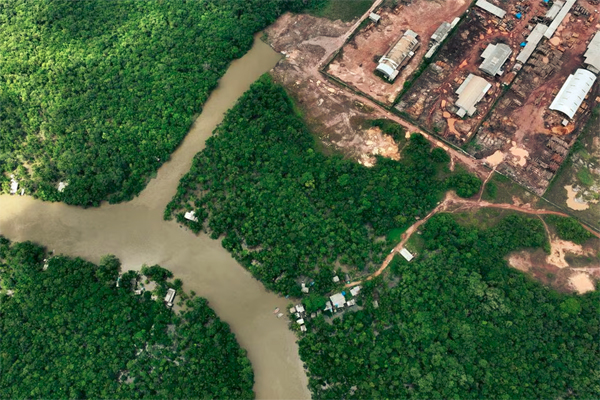
Jake Spring, Reuters
SAO PAULO
EnergiesNet.com 08 07 2023
Eight Amazon rainforest nations are expected to face divisions over proposals to block new oil drilling and end deforestation when they meet on Tuesday for their first summit in 14 years.
The meeting of , the Amazon Cooperation Treaty Organization (ACTO) gathers heads of state from Bolivia, Brazil, Colombia, Ecuador, Guyana, Peru, Suriname and Venezuela for two days in the northern Brazilian city of Belem.
They will aim to forge unified policies, goals and positions in international negotiations on some 130 issues ranging from financing for sustainable development to indigenous inclusion.
But at a pre-summit meeting last month, Colombian President Gustavo Petro pushed his Brazilian counterpart Luiz Inacio Lula da Silva to block all new oil development in the Amazon. Brazil is weighing whether to develop a potentially huge offshore oil find near the mouth of the Amazon River.
“Are we going to let hydrocarbons be explored in the Amazon rainforest? To deliver them as exploration blocks? Is there wealth there or is there the death of humanity?” Petro asked in a speech alongside Lula.
Days later, Petro underscored the issue in an op-ed in the Miami Herald, writing: “As heads of state, we must assure the end of new oil and gas exploration in the Amazon.”
The debate over drilling for oil near the mouth of the Amazon has sparked fierce infighting in Lula’s seven-month-old government, pitting advocates for regional development against environmentalists.
Asked whether oil would factor into an accord at the summit, Brazilian diplomats told journalists last week that a joint statement was still being negotiated and economic development more broadly was under discussion.
A Brazilian government official, who was not authorized to speak to the media, said that Colombia was in an easy position to propose no new drilling in the Amazon because it did not have significant oil reserves there, unlike Brazil or Peru.
For his part, Lula pushed at the pre-summit meeting in Leticia, Colombia, for all countries in the region to pledge an end to deforestation by 2030. Only Bolivia and Venezuela have not yet made such a commitment.
Bolivia could be a barrier to such a regional 2030 pact, the Brazilian government source said. Primary forest loss there rose 32% last year amid fires and rapid agricultural expansion, according to Global Forest Watch.
The Bolivian government did not respond to requests for comment.
Other differences that could surface at the summit are more subtle disagreements about priorities. Colombia hosted the pre-summit meeting where top on the agenda was cross-border collaboration to address the rising threat of drug traffickers perpetrating environmental crimes in the Amazon.
Brazil, by contrast, has emphasized opportunities for sustainable development, reflecting Lula’s campaign platform focused on poverty reduction and conservation.
Reporting by Jake Spring; Additional reporting by Oliver Griffin in Bogota and Lucinda Elliott in Montevideo; Editing by Brad Haynes and Cynthia Osterman
reuters.com 08 07 2023












